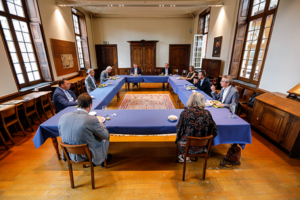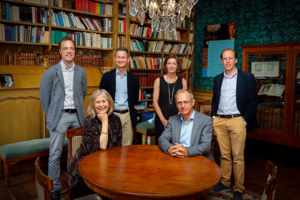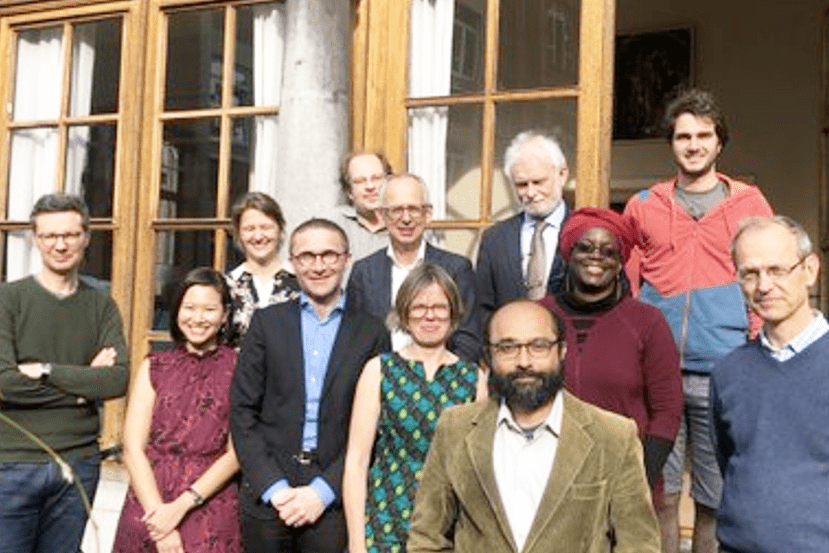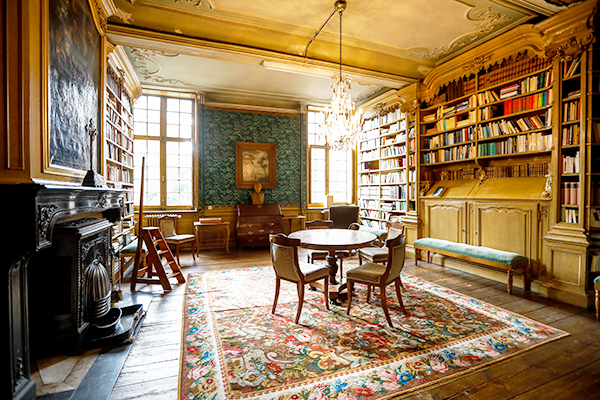
Mission
Information has become very accessible today and we are constantly faced with conflicting views. It is difficult to distinguish between reliable and unreliable information, sometimes leading the general public to confuse scientific findings with opinions. A healthy public debate about the important societal challenges needs a common and scientifically sound basis. LIAS wants to contribute to this basis by integrating scientific insights on the basis of international and interdisciplinary discussion, and by communicating these integrated insights to the general public in an interesting and comprehensible way.
In-depth knowledge requires specialisation
Universities tend to be organised in faculties and departments, which focus on partial aspects of reality. Academic research may therefore seem fragmented. In order to succeed in providing a basis for well-founded societal debate, science must also bring together its partial insights across disciplinary boundaries. A well-informed public debate will contribute to the acceptance of sensible policy decisions. This is why LIAS aspires to involve renowned researchers in international consultation on the challenges that will determine the future of our global community. Based on the best scientific knowledge from various disciplines from all over the world, we arrive at integrated long-term visions.
Good communication brings thought-provoking ideas to life
It is not only important to develop relevant long-term visions, it is just as important to make these substantiated visions accessible to a broad audience. This is why LIAS focuses on the appealing, comprehensible communication of these scientific visions. Only thus are insights able to find access to societal debate and contribute to the awareness of national and international public opinion.
LIAS is a University-Based Institute for Advanced Study (UBIAS). Unlike stand-alone Institutes for Advanced Study, University-Based Institutes for Advanced Study take advantage of the expertise and research networks that their home university offers. Conversely, the international dynamics of a UBIAS contributes to the academic culture and scientific achievements of the home university.
LIAS is embedded in the KU Leuven, one of the top universities worldwide. The KU Leuven is one of the oldest universities in Europe, with an extensive historical and cultural heritage. Among renowned leading researchers, therefore, there is considerable willingness to come to Leuven.
GOVERNANCE
LIAS is managed by a Management Board and an Executive Committee.
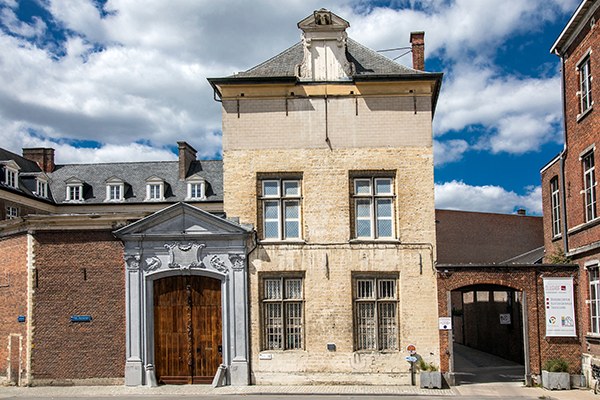
Holland College
Holland College was founded in 1617 to provide accommodation for theology students from the diocese of Haarlem. Due to a twist of fate, the college was not dismantled during the French occupation. When it was sold in the early nineteenth century, it passed into the hands of Sister Cicercule Paridaens, who used it to house a girls’ boarding school, which later developed into a vibrant school community. The sisters left the interiors of some of the rooms (library, staircase and chapel) intact. KU Leuven acquired the college in 2009 and today, this unique heritage is the base of Metaforum and LIAS.
LIAS fellows are housed in Leuven’s Great Beguinage (Dutch: Groot Begijnhof), but have a study at the college. Meetings, dinners and discussions also take place at the college. At the college, Metaforum uses the facilities to organize weekly lunch discussions, debates and talks for members of the university community and other interested parties. Also chamber music concerts regularly take place at the college. In this way, Holland College serves as a meeting place for academic reflection on the intersection between international scientific consultation and culture.
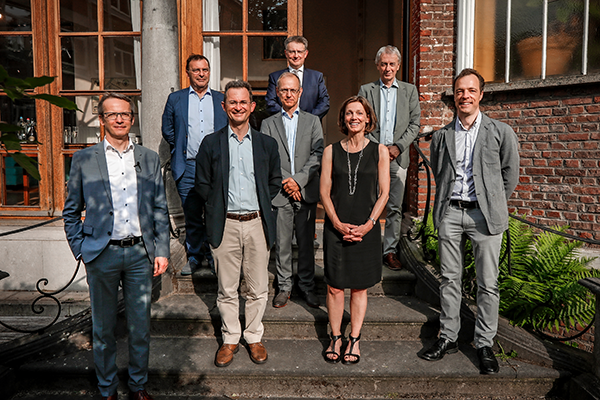
LIAS Foundation
LIAS Foundation is a Fund the resources of which are intended for both the operations and communication of LIAS. Operations at LIAS include organizing residencies for, and consultation between LIAS fellows, and coordinating public lectures and debates. LIAS communication relates to the development of the website, presentations, video recordings and publications on the basis of which the LIAS findings are communicated to a broad audience in an appealing manner.
LIAS Foundation is managed by a Management Board consisting of the Rector, the General Administrator, the Group Chairman of KU Leuven, the Chair and a member of the steering group of Metaforum, and the initiators of the Fund, together with a number of co-opted external members for a five-year mandate. The Management Board is co-chaired by the Rector, currently Luc Sels, and the initiator of the Fund, Joost Van Meerbeeck.
Additional support for LIAS
In addition to LIAS Foundation, LIAS is able to appeal to a number of other funds and resources, including the Herman Van der Wee Fund and the Mark Waer Fund for the promotion of interdisciplinary societal reflection. The Herman Van der Wee Fund was established in 2016 “to promote the input of internationally renowned fellows for the research of young postdoctoral researchers from the Social and Human Sciences and to give the transdisciplinary consultation at the KU Leuven an international dimension.” The Mark Waer Fund was established to promote interdisciplinary consultation at the KU Leuven. For the first project in 2018, Societal Aspects of Dementia, support also came from the Opening the Future philanthropic campaign.
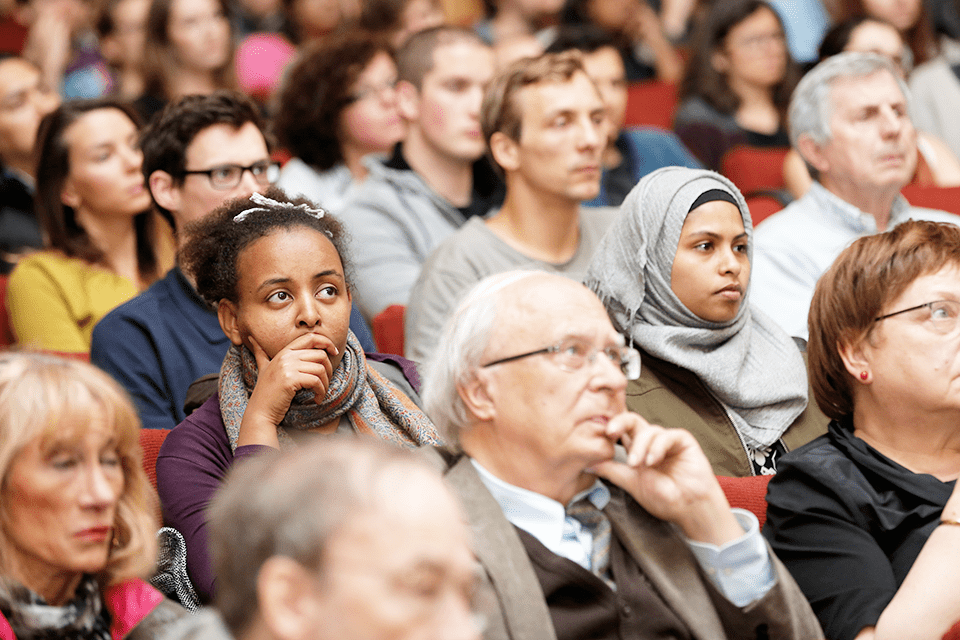
Metaforum
Metaforum is a consultation platform for interdisciplinary consultation within the KU Leuven. Metaforum was created with the express intention of optimising the value of scientific insights for societal debate. Academics naturally strive for in-depth knowledge within a clearly defined research domain. They participate in discussions at the frontline of specialized research and their knowledge is often highly specialised. By inviting academics at the KU Leuven to consult together on socially relevant topics, points of view from a broader perspective can be developed. In order to enrich societal debate with integrated academic insights, Metaforum invites academics to create position papers together.
Metaforum offers LIAS the ideal starting point to enter into scientifically well-prepared discussions with leading international researchers on problems that will have a significant impact on the future of our global community. After all, the themes around which LIAS organises discussions, are substantively prepared by a Metaforum working group consisting of Leuven researchers. Defining the issues around which international consultation is to be organized is thus finalized on the basis of the most recent scientific findings. At the same time, the most relevant leading researchers can be traced using the international networks of the Leuven researchers.
HISTORY
In 2020, rector Luc Sels and the board of the KU Leuven decided to move forward with the development of a Leuven Institute for Advanced Study. On 2 June 2021, the KU Leuven signed an agreement with benefactors Joost and Hilde Van Meerbeeck-Debois and their family office.
Official Presentation of LIAS
Establishment LIAS Foundation
Democracy and the Civil Society
Societal Aspects of Dementia
Metaforum Institute
Holland College
Full History
The ambition to establish a Leuven Institute for Advanced Study has been around for quite some time. Several Leuven researchers who spent time at the Princeton IAS and other prominent Institutes for Advanced Study, were aware of the added value of such institutions. The KU Leuven plays a leading role internationally in a variety of fields. It has a unique cultural heritage and it is situated in the heart of Europe, making Leuven an attractive location for leading researchers to study as a fellow and to consult with other colleagues.
In the past, Professor Herman Van der Wee was instrumental in convincing the board of the KU Leuven to set up an Institute for Advanced Study in Leuven. Since 2018, international fellows have been invited to Leuven for thematic interdisciplinary consultations on socially relevant issues.
The Leuven Institute for Advanced Study (LIAS) was officially established in 2020. The intention was to do better justice to KU Leuven research by creating more integrated position papers in order to participate in societal debate in a fruitful way. Metaforum took up residence at Holland College in 2011, with the aim to develop this old university college into a meeting place for substantial conversation and cultural events. At the same time, the ambition grew to internationalise the consultations at Metaforum and to expand Holland College into the home base of an Institute for Advanced Study.
In 2016, friends and acquaintances of Herman Van der Wee took the initiative to create a fund for the establishment of a Leuven Institute of Advanced Study, which was given the name Metaforum Institute by the then university board. The first fellows were invited to discuss the Societal Aspects of Dementia in 2018, with the resources of the Opening the Future campaign. In 2019, with the resources of the Herman Van der Wee Fund, fellows were invited to consultations on Democracy and Civil Society.
In 2020, rector Luc Sels and the board of KU Leuven decided to move forward with the development of a Leuven Institute for Advanced Study. The intention for LIAS is to gather scientific insights concerning major societal challenges on the basis of international and interdisciplinary consultation.
For the realization of this ambition, KU Leuven was able to count on the cooperation of a number of enterprising families within the context of their societal commitment. In addition to investing in the work and residence of leading researchers, they inspired LIAS to also invest in communicating the results of this research. In this way, the ambition is to stimulate societal debate on the basis of ample international factual material and interdisciplinary reflection.
In June 2021, the Rector and the General Administrator of KU Leuven signed an agreement with Joost and Hilde Van Meerbeeck-Debois and their family office. This resulted in the establishment of the LIAS Foundation which, building on the work of the Herman Van der Wee Fund and alongside the contribution of the KU Leuven, will provide the means for developing LIAS.
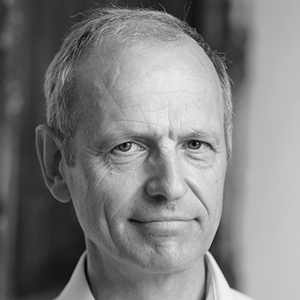
A healthy public debate about important societal challenges requires a common and scientifically sound basis.
Bart Pattyn
Co-Chair LIAS and member Board LIAS Foundation
Contact
- Pater Damiaanplein 9
- BE-3000 LEUVEN
- Contact
- +32 16 32 38 29

